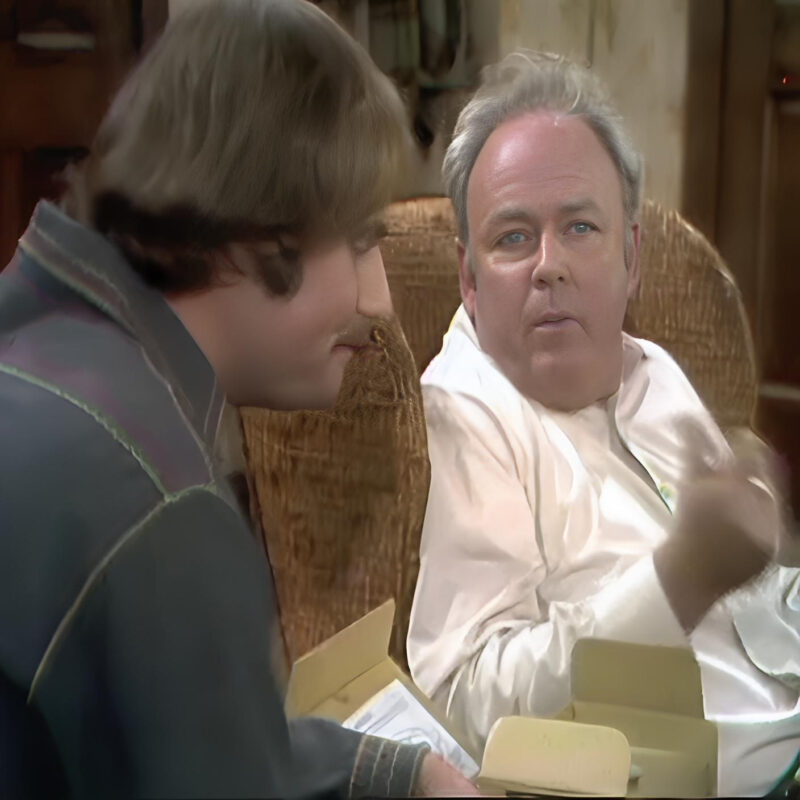
LOS ANGELES – “Boy, the way Glenn Miller played. Songs that made the Hit Parade. Guys like us we had it made. Those were the days.” These iconic lyrics, sung by Jean Stapleton and Carroll O’Connor, opened each episode of “All in the Family,” transporting viewers to a time filled with nostalgia and laughter.
The recent passing of Jean Stapleton, who played the beloved Edith Bunker, has reignited fond memories for millions of fans who cherished the groundbreaking show. However, Stapleton’s death also brings to mind the show’s bold and, at times, controversial approach to American values and social issues.
When “All in the Family” premiered in 1971, it was unlike any sitcom before it. The show tackled contemporary social issues with a distinct, albeit left-leaning, perspective. Carroll O’Connor’s Archie Bunker, a blue-collar, narrow-minded bigot, was juxtaposed against Rob Reiner’s Mike Stivic, a liberal intellectual, creating a dynamic that challenged viewers’ perceptions and sparked debate.
In an era with only three major TV networks, “All in the Family” quickly became a cultural phenomenon, providing a public forum for discussing and often satirizing traditional values. Despite its humor, the show struggled to distinguish between Archie’s bigotry and his adherence to tradition. Each week, Bunker’s viewpoints, no matter how outdated or offensive, were skillfully countered by Stivic, reinforcing a liberal narrative.
This approach, while entertaining, often painted all traditional values with the same brush, dismissing them as mere relics of an unenlightened past. As Russell Kirk noted in “The Conservative Mind,” “All prejudice is not bigotry or superstition… Prejudice is prejudgment, the answer with which intuition and ancestral consensus of opinion supply a man when he lacks either time or knowledge to arrive at a decision predicated upon pure reason.”
Archie Bunker, a World War II veteran with a blue-collar background, embodied this blend of prejudice and tradition. His practical knowledge came from a life of manual labor and authority, not academic enlightenment. His character, flawed yet familiar, represented a segment of America grappling with a rapidly changing world.
Looking back, Archie’s character can be seen not just as a “lovable bigot,” but as a symbol of enduring traditional values. Meanwhile, Mike Stivic’s character, much like modern liberalism, was often perceived as disconnected from practical realities.
Despite its critique of tradition, “All in the Family” remains a beloved classic, remembered for its humor and its willingness to confront difficult social issues. The show’s opening song, a duet between Archie and Edith, nostalgically recalls a time when “we didn’t need a welfare state” and “everybody pulled his weight.”
About the Author Matthew G. Davis, a former journalist and now a Lansing-based attorney, specializes in civil rights, election law, and campaign finance issues. He has previously directed communications for the Department of Corrections under Republican Gov. John Engler, Attorney General Mike Cox, and The Sterling Corp. His reflections on “All in the Family” highlight the lasting impact of the show’s exploration of American values and societal change.
Those were indeed the days.
